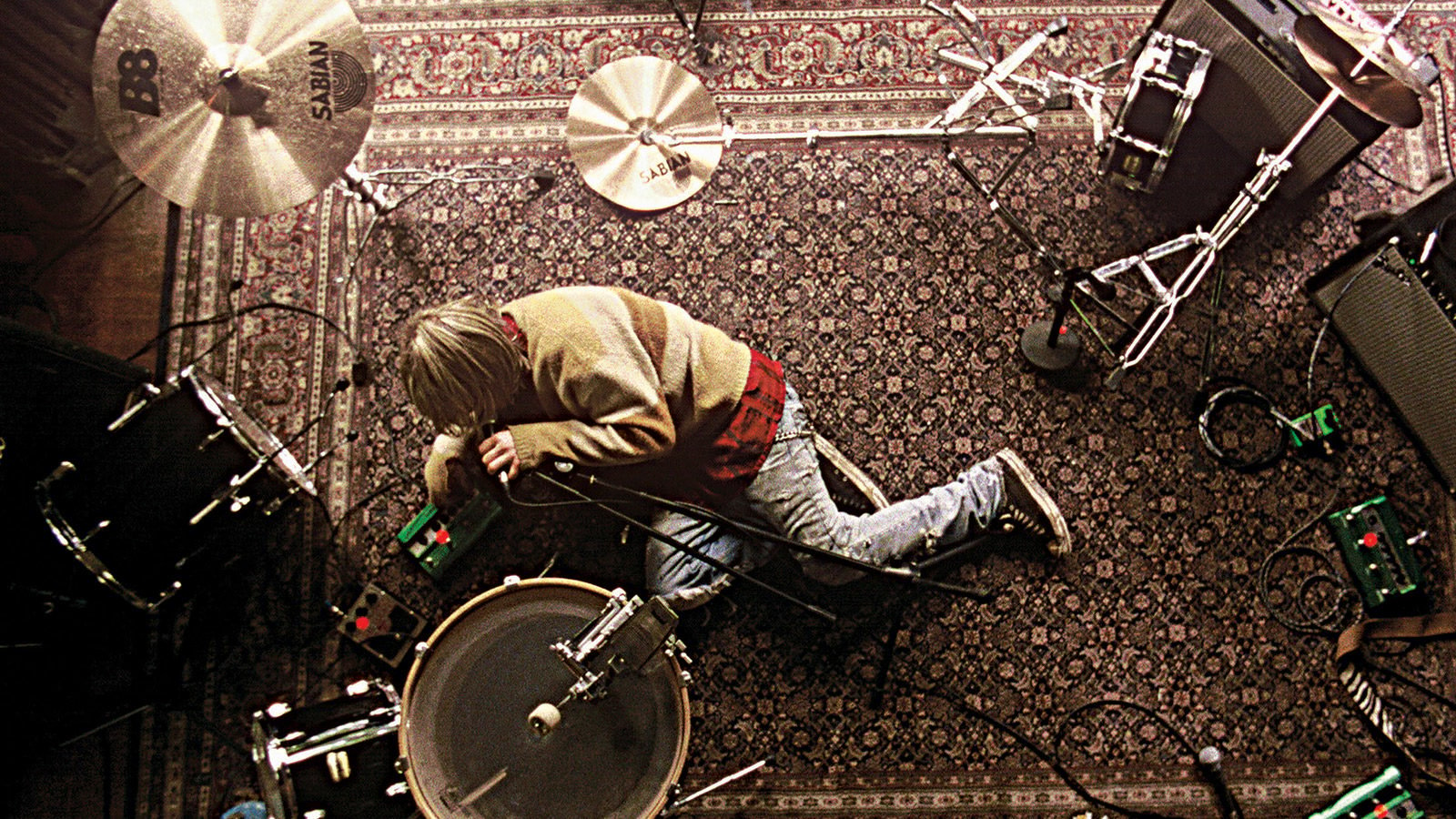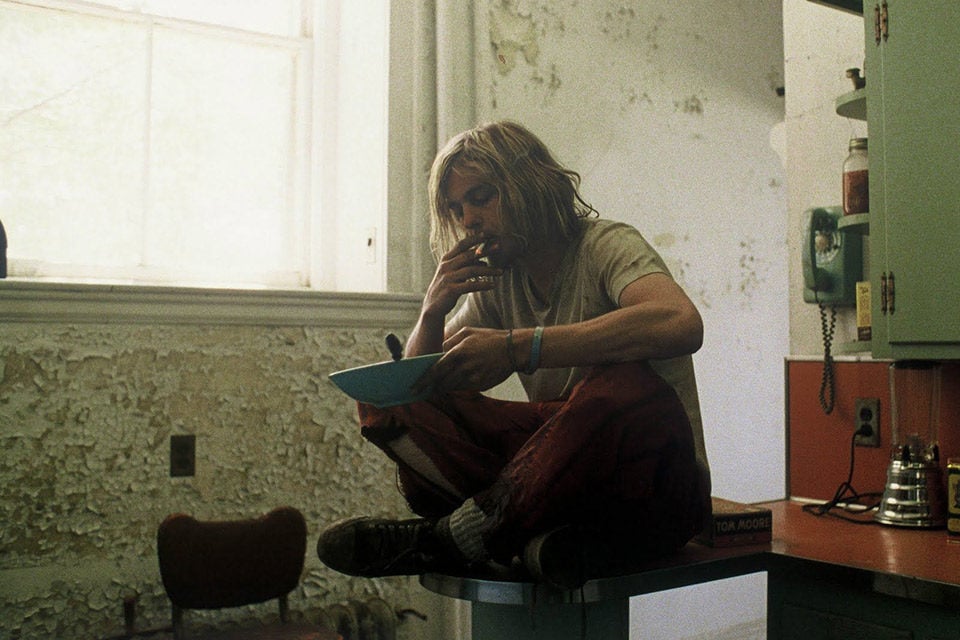
Guided by Voices
A few months prior to the release of Last Days significant chatter emerged on the Internet. It seems that fans of either Michael Pitt or Kurt Cobain had located an MP3 file of the song “From Death to Birth.” Sung by Pitt—in character as a shadowy Cobain analogue named Blake—the tune forms something of a sonic centerpiece to the film. Much frantic web activity focused on deciphering the lyrics—no mean feat since some are mumbled with appropriate Cobain-esque unintelligibility. Anyone who has struggled with interpreting the aural poetry of a Nirvana song knows the sensation—and (most likely) enjoys it.

Speaking of pleasure: if you are looking for a modicum of narrative satisfaction Last Days will—by design—deny it. There is no story. The tragic tabloid elements that inspired the film are fairly well known, but Van Sant cannily chose a sharply oblique angle: the key narrative crux—Cobain’s will-to-death decision—is something that occurs prior to anything seen onscreen. We, the viewers, are privy only to the aftermath, i.e., the events that occur after the man has made up his mind to kill himself. A moment of soul-shattering significance is presented as a mere denouement—or, perhaps more appropriately, as an echo. The mumbling and stumbling Blake makes his way through the fading shockwaves of his own private volition.
Van Sant’s Elephant, Gerry, and Last Days form a trilogy of films sharing similar structural strategies. All three are blessed with the roving kino-eye of DP-extraordinaire Harris Savides. Each relies on the exquisitely nuanced sound design of Leslie Shatz. Attentive listeners will note that Elephant and Last Days share music by composer Hildegard Westerkamp, specifically her “Türen der Wahrnehmung” (“Doors of Perception”). It’s a song that can perform wonders as a visceral enhancement to uneasy states of mind. The piece is actually defined as “a radio environment” and was originally commissioned for the 1989 edition of the annual Austrian experimental sonic showcase, Ars Electronica. In Last Days the use of Westerkamp achieves hyper-poignancy: Blake, the tortured musician, lives in a ramshackle mansion where, for example, doorbells and ringing telephones are aspects of a constantly invasive sound environment. They are irritating reminders of the outside world—a place that exists only to make impossible career demands on Blake’s fragile psyche. When we hear the first tones of “Doors”—a series of grandfather clock chimes—the sounds could easily be mistaken for diegetic phenomena originating from within the walls of the rock star’s crumbling estate. But soon after they start, the timbres slow with Doppler shiftiness, melt in the air, and add an almost palpable liquid queasiness to our hero’s rudderless drifting. Blake frequently appears on the verge of literal disintegration—and those moments are always accompanied by a hovering background of sound effects, all ready to be summoned to serve as psychic solvents.

Westerkamp’s 1974 article “Soundwalking” provides a few handy pointers to her spatiotemporal acoustic process, insights that could be interpreted (retroactively) as motivations for some of Blake’s peregrinations in Last Days: “Start by listening to the sounds of your body while moving. They are closest to you and establish the first dialogue between you and the environment. If you can hear the quietest of these sounds you are moving through an environment that is scaled to human proportions. In other words, with your voice or your footsteps you are ‘talking’ to your environment, which in turn responds by giving your sounds a specific acoustic quality.” The idea of a symbiotic play between personal noise and the contextual ambience of location is a type of interaction—I would argue it is the defining component—experienced in Van Sant’s trilogy. Think of the sonic sense of the hallways in Elephant; or the duet of crunching footfalls in Gerry’s extraordinary salt-flats tracking shot; or poor Blake, haunting the stairwells of his decrepit domicile, aided, abetted, and finally undone by the atmospherics of Westerkamp.
Last Days is a strange creature: it’s an extremely abbreviated biopic with zero details, a tribute to a man and his music without a trace of his songs, a tragedy without an arc, etc. It’s also dynamite artistry. It understands the unlimited potential for sound to advance thought and emotion into the filmic firmament. And, in its own odd way, it rocks.







